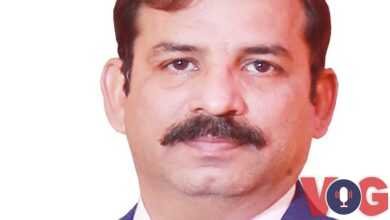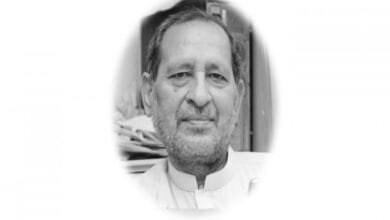
Farwa Imtiaz……… The Telegraph’s Paid Drama on Pakistan’s Elections
The Telegraph’s role in amplifying PTI’s fake grievances is dismantled in this article, and the integrity of Pakistan’s 2024 elections is defended against baseless foreign attacks through the use of credible evidence.
Recent baseless and entirely false allegations of the Commonwealth Secretariat colluding with Pakistan’s so-called and falsely claimed military-backed government to conceal alleged election rigging during the 2024 general elections were recklessly thrown as headlines by The Telegraph, a British outlet with a questionable record when it comes to reporting on Pakistan. On September 15, 2025, a sensational article was published under the headline “Commonwealth ‘helped hide Pakistani election rigging’,” written more for clicks than credibility, and relying heavily on a leaked, unverified draft of the Commonwealth Observer Group’s (COG) report.
This piece was suspiciously aligned with the narrative of Imran Khan’s Pakistan Tehreek-e-Insaf (PTI) and its UK-based operative, Zulfi Bukhari, and was made to reek of paid propaganda aimed at maligning Pakistan’s democratic process. In reality, what was reflected was a broader pattern that whenever PTI was seen to struggle at home, sympathetic Western outlets were mobilized to manufacture outrage abroad. The role was once again played by The Telegraph, which was seen behaving less like a serious newsroom and more like a Goldsmithian extension, loud on Pakistan’s internal politics, while remaining silent on issues of genuine global urgency such as Gaza. In this way, the newspaper has reduced to a mere mouthpiece for hire.
The Telegraph’s role in amplifying PTI’s fake grievances is dismantled in this article, and the integrity of Pakistan’s 2024 elections is defended against baseless foreign attacks through the use of credible evidence.
The COG was invited by Elections Commission of Pakistan to independently observe the general elections which were held in February 2024, under the command of Dr. Goodluck Jonathan, who is the former President of Nigeria. In total, 13 Commonwealth representatives were chosen under strict terms that laid the basis for impartiality and non-interference and transparency in the conduct of the elections.
Various observers were deployed across cities like Islamabad, Lahore, Karachi, and many other urban areas where direct interaction with electoral officials, political parties, civil society, and security agencies took place. The entire election cycle was monitored; including pre-poll, polling-day, and results.
Contrary to The Telegraph’s framing, the COG’s findings were not “buried.” The compiled report was delivered to Pakistan’s government and the Election Commission, with its formal publication scheduled for late September 2025. The timeline was set in line with the Commonwealth’s standard practice of ensuring accuracy and diplomatic review, rather than suppression. Accusations of political interference have been repeatedly rejected by the Secretariat, which has pointed to its record of 130 election missions across 40 countries since 1980 as evidence of impartiality.
The so-called “leaked report” sensationalized by The Telegraph is nothing more than an unverified draft, lacking official standing, stripped of methodological safeguards, and exploited for political ends.
On September 15, a story was published by The Telegraph, relying almost exclusively on a document circulated by “Drop Site News,” a platform with little credibility. Pakistan’s election was portrayed as stolen through the newspaper’s framing, which quoted extensively from Zulfi Bukhari and echoed PTI’s long-running international lobbying campaign.
Zulfi Bukhari’s influence is neither new nor hidden. As PTI’s key foreign media coordinator, Western outlets have long been used by him to attack Pakistan’s institutions. From lobbying in Washington to providing talking points to sympathetic journalists, a transparent strategy has been pursued where Pakistan is framed as authoritarian abroad to generate political leverage at home. His testimony before the U.S. Congress in July 2025 was positioned squarely within this broader campaign of external pressure.
Zulfi Bukhari has been repeatedly platformed by The Telegraph, whether on Imran Khan’s Oxford chancellorship bid in 2024, the ban on PTI’s cricket bat symbol, or now the 2024 election. Serious questions are therefore raised about the paper’s editorial independence. When a single political operative is featured this consistently, the line between journalism and lobbying becomes dangerously blurred.
Even The Telegraph’s silences are telling. As critics on X highlighted, global crises such as Gaza appear to leave the paper unmoved, while every opportunity to dramatize Pakistan’s internal politics is seized upon. Its selective outrage and narrow focus reveal it not as a serious newsroom but as a megaphone for hire.
The Telegraph’s claims collapse under scrutiny. Each allegation, recycled from PTI talking points, can be debunked with evidence:
The accusation that the Commonwealth colluded with Pakistan’s military is baseless. Adherence to the 2018 Declaration on Commonwealth Principles for Election Observation was maintained by the 13-member observer group. Over 50 million votes were processed across 90,675 polling stations. While logistical challenges were acknowledged as real, no independent or verifiable proof of “systemic rigging” has emerged. Reliance on a draft leak without corroboration constitutes malpractice, not journalism.
The supposed “suppression” of the COG report is nothing more than procedural sequencing. Drafts are regularly disclosed for government review ahead of any public release. This procedure was not intended to hide something but rather to ensure factual accuracy and promote dialogue. Concerns such as internet restrictions and heavy security were openly acknowledged in the COG’s interim statement on February 10, 2024, yet no evidence of targeted political suppression was found.
PTI’s restrictions were not unique. There were a few campaigns for all parties which were disrupted by security curfews in Khyber Pakhtunkhwa and Balochistan because of terror threats, besides the flooding in Punjab. In total, 7,913 candidates contested against each other for 266 National Assembly seats. Disqualifications affected 1,219 candidates across the political spectrum, not solely PTI. Framing these universal hurdles as targeted victimization of a single party constitutes deliberate distortion.
Minor clerical discrepancies are present in every large election, including those in Western democracies. Inconsistencies were identified by the COG in just 2.3% of polling stations, and these were attributed to clerical errors or delayed transmissions. No demonstrated impact on overall results was observed. Inflating such routine irregularities into proof of fraud constitutes irresponsible fearmongering.
Fraud has not been legitimized by the Commonwealth. Voter resilience was praised, institutional reforms were recommended, and enhanced Election Commission autonomy was urged in its interim findings. These constructive recommendations were, however, twisted by The Telegraph into purported evidence of complicity.
By amplifying a politically motivated leak and providing space to PTI’s foreign lobbyists without meaningful scrutiny, both the Commonwealth’s credibility and Pakistan’s democratic process have been undermined by The Telegraph. The wider electoral context, including 128 security incidents, a deadly bombing in Balochistan, and severe weather disruptions, was ignored, despite these factors shaping the elections far more than the conspiracies that were made.
The official findings of the European Union’s observer mission, also cited by The Telegraph, have not been released, yet this was framed by the paper as evidence of collusion rather than as part of due process. Such framing constitutes agenda-driven distortion, not impartial reporting.
Pakistan conducted its elections for 2024 under the most extraordinary pressures, threats of terrorism, heavy security deployments, and break down of normal climate patterns. However, while millions of voters turned out, nothing of credible evidence regarding systemic fraud has yet been verified. The forthcoming official report of the Commonwealth Observer Group will be judged on the strength of impartial methodology, not on the manipulations of partisan leaks.
Until that report is released, The Telegraph remains, as many Pakistanis and observers already consider it, not a serious journalistic voice but, in the apt words of social media users, a “Goldsmithian extension for hire”, a paper that privileges manufactured outrage over factual truth.




